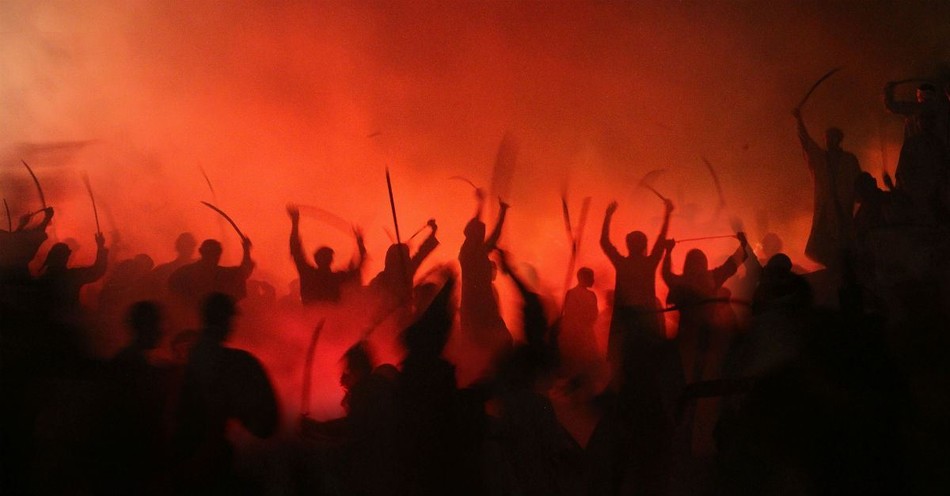One section in the Bible seems to have captured the attention of Christians and non-Christians alike: The Battle of Armageddon.
The phrase itself conjures images in pop culture that are associated with the end of the world. From movie titles to references in books and media of the explicit name, “Armageddon,” one can surmise this is some great battle (The Last Battle, if you will) that takes place in the Last Days before the new heaven and the new earth (Revelation 21:1).
This article will dive into the Scriptural passages that talk about Armageddon, discuss the details we have available about this great battle, and what it means for us today.
Armageddon Meaning
The actual word for “Armageddon” only appears once in the Bible (Revelation 16:16). Even though most of the New Testament is written in Greek, this comes from the Hebrew word which means, “Mount Megiddo", which may be the same with Har-megiddo; for the Hebrew word (rh) is read "Ar" by the Greeks; so the city Argarize is interpreted the mountain of the most High.
What Is the Battle of Armageddon?
Revelation 16:16 - ""Then they gathered the kings together to the place that in Hebrew is called Armageddon." - describes what happens after God pours out the sixth bowl of wrath (one of the many plagues that permeates the Revelation narrative).
In this verse, John, the author of Revelation, writes about the gathering of earthly rulers and armies to a place called Armageddon. The word "Armageddon" is derived from the Hebrew "Har-Megiddo," and it is generally understood to be a symbolic location for a final, climactic battle.
The Battle of Armageddon is described in more detail in Revelation 19:11-21 (NIV), where it portrays a dramatic confrontation between the forces of good, led by Jesus Christ (the rider on a white horse), and the forces of evil, symbolically represented by the beast and the false prophet. The antichrist gathers “kings” in a placed called Armageddon. These kings, loyal to the antichrist, will gather their armies to wage war against the people of God. This battle results in the defeat of the enemies of God and the ultimate triumph of righteousness.
We see hints of this war in Revelation 16:14 and in Revelation 20:7-9, where Satan gathers enemies from the four corners of the earth (in essence, everywhere). They’ll surround the camp of the Christians, but fire from heaven will consume them.
Where Is the Battle of Armageddon?
We can actually find some contextual clues about this battle from the Old Testament.
Although we don’t have an exact location for Armageddon, we can surmise from its name (“mount” or “hill) that the battle will take place on a hilly spot.
Some have placed the battle about 60 miles north of Jerusalem where:
- Barak fought the Canaanites, a people known for living in depravity (Judges 4:15)
- Saul and his sons perished in battle (1 Samuel 31:8) against the Philistines, one of Israel’s most known and infamous enemies
- Pharaoh Necho of Egypt, of whom Israel has had a tumultuous history, killed Josiah, one of the few good kings of Judah who turned the nation back to God (2 Chronicles 35:22).
It would make sense to place the battle out there due to Israel’s history of that location. It symbolizes a holy people coming against enemies of darkness.
We also know that God ultimately wins this battle, even if the enemy pulls armies from all the ends of the earth to cross the Euphrates to destroy God’s people.
When Is the Battle of Armageddon?
Although Armageddon may seem decades or centuries away, we do not know the hour when Jesus will return nor when the events in Revelation will take place.
But, at this present moment, we can derive the following from the passages about the Battle of Armageddon:
Modern Significance of Armageddon in the Bible
1. The enemy will try to intimidate Christians.
He will pull people from all four corners of the earth. Kings will side with him, and they will attempt to annihilate God’s people.
2. God will overcome the enemy.
The enemy cannot form an obstacle big enough to prevent God from acting. Just as he overcame the enemy on that very same location during the time of Barak and Deborah, he will do the same in the End Days.
3. History plays an important role in End Times.
If you take a look at all the Old Testament prophecies concerning Jesus or anything that appeared in the New Testament, we often see hints of history playing over and over again in the biblical narrative. Ruth meets Boaz in Bethlehem, the same place of Jesus’ birth in their family line centuries later, for instance. We need to pay attention to what Scripture says about the End of Days and watch for the markers described in Revelation and other books of the Bible.
4. Although we cannot know the hour, we can trust God.
Sometimes Christians like to predict when events in Revelation will take place. But we should shift our focus from trying to predict when Christ will return to preparing for that return. In such preparation, we need to spread the Gospel to the end of the earth, reaching as many people as possible, prior to this great battle to end all battles.
Photo Credit: Unsplash/Hasan Almasi



.jpg)
